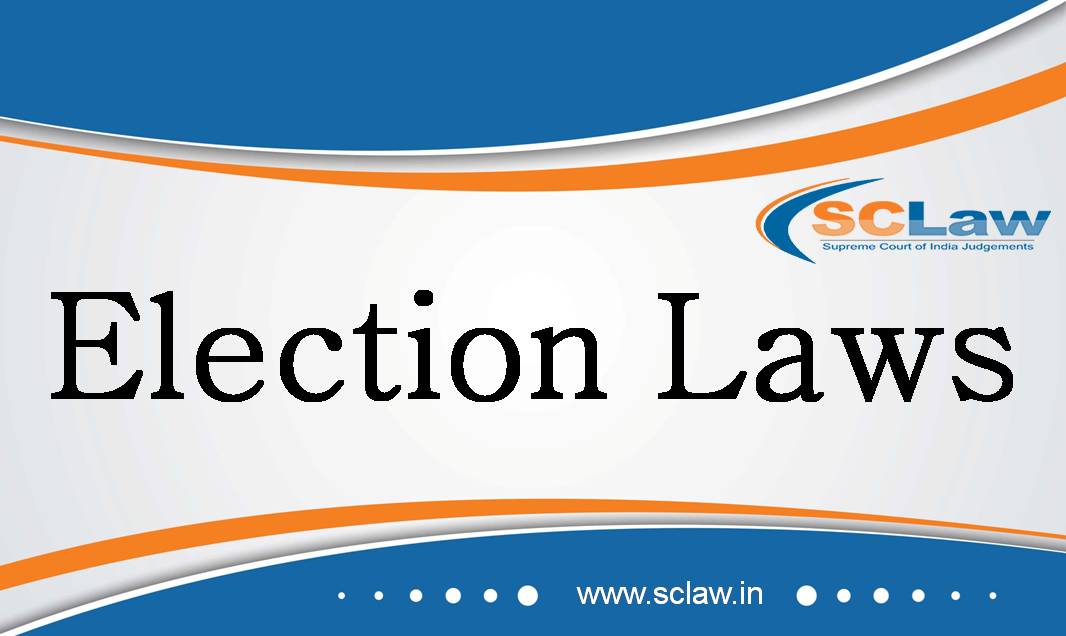We would think in the circumstances of this case that the appellant cannot be convicted for the offence under Section 376. It would indeed be unsafe to convict him based on the testimony of the prosecutrix. He would certainly be entitled to the benefit of doubt created by the circumstances.
We would think in the circumstances of this case that the appellant cannot be convicted for the offenceunder Section 376. It would indeed be unsafe to convict him based on…
Income Tax Act, 1963 – Section – 245C, 245H, 245D – Application for settlement – The assessee approached the Settlement Commission (Commission) with an application under Section 245-C of the Act – Section 245-H empowers the Commission to grant immunity from prosecution to an applicant if it is satisfied that he has made full disclosure of his income and has fully cooperated with the Commission
(1996) 2 AD 629 : (1996) 132 CTR 290 : (1996) 219 ITR 618 : (1996) 3 JT 144 : (1996) 2 SCALE 655 : (1996) 8 SCC 154…
Election—Corrupt practice—Seeking vote on basis of religion, race, caste, community or language—It is illegal and prohibited and would amount to corrupt practice
(2017) AIR(SCW) 401 : (2017) 2 AIRBomR 34 : (2017) AIR(SC) 401 : (2017) AllSCR 337 : (2017) 1 AllWC 652 : (2017) 1 BCR 710 : (2017) 1 HLT…
Civil Procedure Code, 1908, Order 39 Rules 1 and 2 read with Section 151–Trade Marks Act, 1999–Temporary injunction–Temporary injunction restraining the respondents, their officers, etc. from using ‘Skyline’ as a part of their trademark in relation to their activities in the field of education–No similarity in the name of two parties–Appellant using the name ‘skyline’ as a prefix with the institute of technology and engineering and the respondent using ‘skyline business school’–A student would not get any deception by both names–
2010(1) LAW HERALD (SC) 285 IN THE SUPREME COURT OF INDIA Before The Hon’ble Mr. Justice Tarun Chatterjee The Hon’ble Mr. Justice G.S. Singhvi The Hon’ble Mr. Justice B.S. Chauhan…
According to Exception I to Section 300 IPC, culpable homicide is not murder if the offender causes the death of the person who gave the provocation, whilst deprived of the power of self-control by grave and sudden provocation. However, the First Proviso to Exception I provides that the provocation should be one which is not sought or voluntarily provoked by the offender as an excuse for killing or doing harm to any person.
SUPREME COURT OF INDIA DIVISION BENCH SATYA RAJ SINGH — Appellant Vs. STATE OF MADHYA PRADESH — Respondent ( Before : Abhay Manohar Sapre and Indu Malhotra, JJ. ) Criminal…
“Under Section 38 of the Specific Relief Act, an injunction restraining the defendant from disturbing possession may not be granted in favour of the plaintiff unless he proves that he was in actual possession of the suit property on the date of filing of the suit.”
“Under Section 38 of the Specific Relief Act, an injunction restraining the defendant from disturbing possession may not be granted in favour of the plaintiff unless he proves that he…
Private Defence–A right to private defence does not include a right to launch an offence particularly when the need of defence no longer survives. Private Defence–Burden is on accused to show that he had a right to private defence which extended to cause death.
2009(1) LAW HERALD (SC) 423 IN THE SUPREME COURT OF INDIA Before The Hon’ble Mr. Justice Arijit Pasayat The Hon’ble Mr. Justice Asok Kuamr Ganguly Criminal Appeal No. of 2009…
Accident–Permanent disability–Certificate of Govt. Hospital, should not have disbelieved on the supposition that doctor had been issuing certificates fixing ‘permanent disability which was not proportionate to the injury’.
2009(1) LAW HERALD (SC) 418 IN THE SUPREME COURT OF INDIA Before The Hon’ble Mr. Justice S.B. Sinha The Hon’ble Mr. Justice Cyriac Joseph Civil Appeal Nos. 7320-7321 of 2008…
FIR–It is not compulsory to mention the name of accused in FIR.
2009(1) LAW HERALD (SC) 416 IN THE SUPREME COURT OF INDIA Before The Hon’ble Mr. Justice Arijit Pasayat The Hon’ble Mr. Justice Asok Kuamr Ganguly Criminal Appeal No. 140 of…
Murder motivated by illicit relationship does not fall in rarest of rare category.
2009(1) LAW HERALD (SC) 413 IN THE SUPREME COURT OF INDIA Before The Hon’ble Mr. Justice Arijit Pasayat The Hon’ble Mr. Justice Mukundakam Sharma Criminal Appeal No. 654 of 2004…













